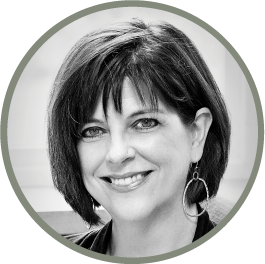Stay up to date with the latest from the blog!
NOT JUST SUPERFICIAL CHANGE, BUT DEEP AND LASTING CHANGE.
Download my FREE EBOOK on the Foundations Of Well-Being:
9 SCIENTIFICLY-BASED PRACTICES TO HELP YOU INCREASE HARMONY, HAPPINESS AND HEALTH.
PLUS get instant access to my FREE EBOOK on the Foundations Of Well-Being:
9 SCIENTIFICLY-BASED PRACTICES TO HELP YOU INCREASE HARMONY, HAPPINESS AND HEALTH.

Priceless Human Resources
Every once in awhile I discover book, or it discovers me, at just the right moment that names, and illuminates troubling thoughts that have been swimming around inside me. Peter Senge’s (2006) The Fifth Discipline: The Art and Practice of the Learning Organization is that kind of book. I am imagining it in years to come, all tattered and worn sitting on my book self, awaiting its next employ.
Senge’s words found me at a time when I had been deeply thinking about the nature of human resources within healthcare organizations. I am not speaking here about HR departments, which uphold policies and procedures that govern operational principles put in place to manage the affairs of human beings employed by an organization. Rather, I am referring to a way of seeing and valuing the human beings who make up an organization as priceless co-creators, and active agents in the making and remaking of an organization’s life. In other words, humans are not seen as the means to an organization’s end; rather, they are central to its emerging and unfolding structure, culture, and political realms always at complex play (Bolman & Deal, 2013)
One of Senge’s (1994; 1999; 2004)core disciplines is called personal mastery. This term refers to the importance of ensuring people receive opportunities to learn and grow, supporting their fulfilment in their work life. Senge suggests that employees who have high degrees of personal mastery in their work tend to be deeply committed and tend to take initiative. For me, this principle speaks to the human need for engagement and meaning, which nourishes not only the individual but also that which she/he is involved with.
Senge (2006) suggests that two underlying movements are involved in the ongoing development of personal mastery
- Clarifying what is important;
- Seeing current reality clearly.
The difference between the two creates “creative tension” (p. 132), which serves to motivate people towards change. This is very different than many change initiatives in healthcare, which often originate from the executive suite and are rolled out to employees with the expectation that they buy-in. Within this kind of change-culture resistance might be expected, but is generally not welcomed, and certainly not engaged with in a way that honours the human spirit. Time and again I see the light go out of people’s eyes as they become less empowered and invested in their work. Senge (2006) speaks to this eloquently, quoting his mentor Dr. W. Edwards Deming: “Our prevailing system of management has destroyed our people…Management by objectives, quotas, incentive pay, business plans, put together separately, division by division, cause…loss, unknown and unknowable” (p. xii). I therefore have come to the conclusion that change strategies that are driven, without careful, thoughtful, and fulsome engagement with those who are going to be carrying out the initiatives, has great potential for failure. People may do what they are being told to do, but they won’t be performing well, which is a lost resource to the organization. Further, these de-spirited implementation strategies have wider consequences, not only impacting the health of the organization but that of its very life-blood: the human beings and the relationships they create together.
References
Bolman, L., & Deal, T. (2013). Reframing organizaions: Artistry, choice, and leadership (5th ed.). San Francisco, CA: Josse-Bass.
Senge, P. (2006). The fifth discipline: The art and practice of the learning organization (2nd ed.). New York, NY: Doubleday.
Senge, P., Kleiner, A., Roberts, C., Ross, R., Roth, G., & Smith, B. (1999). The dance of change: The challenges of sustaining momentum in learning organizations. London, UK: Nicholas Brealey Publishing.
Senge, P., Ross, R., Smith, B., Roberts, C., & Kleiner, A. (1994). The fifth discipline fieldbook; strategies and tools for building a learning organization. New York, NY: Doubleday.
Senge, P., Scharmer, O., Jaworski, J., & Flowers, B. S. (2004). Presence: Human purpose and the field of the future. New York, NY: Crown Business.
CONTACT ME FOR A FREE NO OBLIGATION 15-MINUTE PHONE CONVERSATION TO DETERMINE IF YOU WOULD LIKE TO BOOK YOUR FIRST APPOINTMENT
